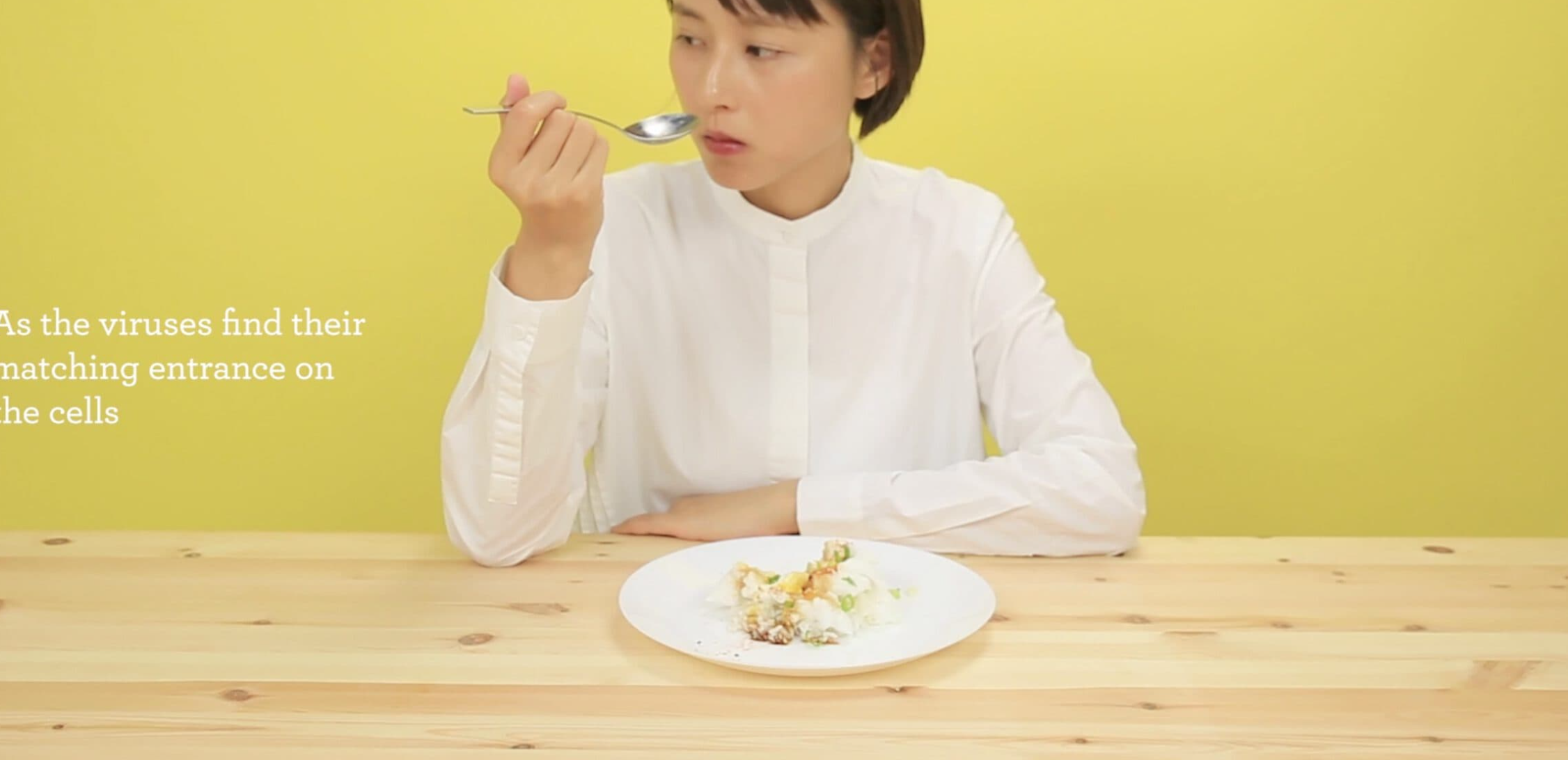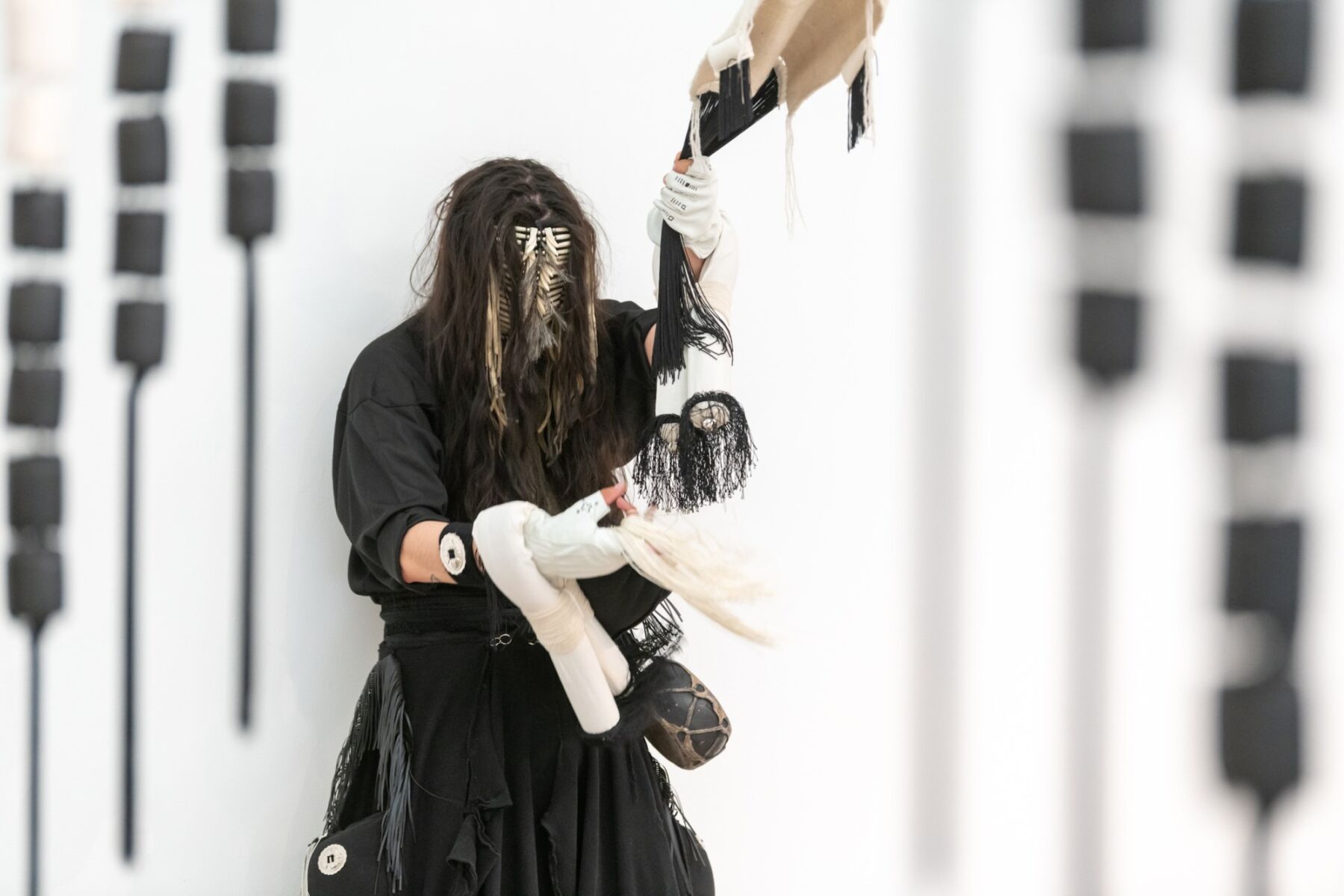Text by CLOT Magazine
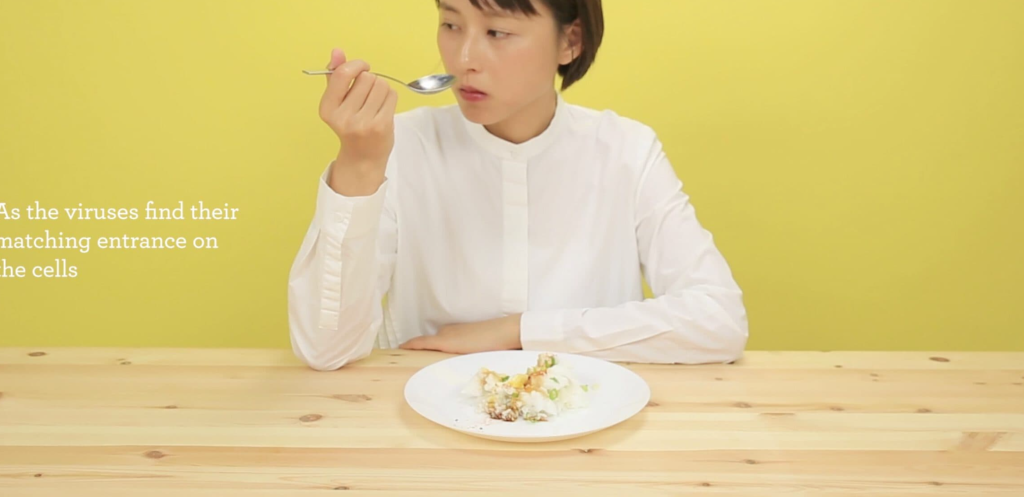
Taiwanese artist and designer Pei-Ying Lin is interested in viruses, especially those that are beneficial or crucial for human survival. Her project Virophilia has evolved both as an artist’s book and installation and also exists as a “Cookbook for the 22nd Century” using foods whose genome has been altered by viruses.
Not all viruses are pathogens. New discoveries of beneficial viruses are starting to reveal some are even crucial for our survival. The number of viruses surrounding us also vastly outnumbers what we have known. To make it short, humans and viruses depend on the existence of each other, Pei-Ying Lin says
The artist also gives us insight into how the project was incepted: Virophilia is my third virus project in my practice. Viruses have always been my interest because they are semi-living and neutral and only become activated when entering a host. How viruses behave is also a collective interaction between the host and the virus instead of the virus on its own. They existed when life on earth started and are deeply intertwined with our life and history.
They are like kaleidoscopes which unfold the delicacy and complexity of the social and biological aspects. My first project around viruses explored the human-virus-vaccines relationship, while the second project discussed the human-virus co-adapting process. Gradually, it became interesting to challenge how ‘close’ we will consciously choose to be with viruses, leading to the idea of using viruses in food. It is not a completely new idea; many similar approaches have been explored in virology and immunology.
However, as an artist, she continues, she has the privilege to make things imaginative and playful with cultural artefacts. Therefore, a cookbook came into being. In the research process, she learned a lot about alternative (and, in fact, more scientific) perspectives to look at the position of viruses in the ecosystem, thanks to friendly virologists such as Miranda de Graaf, Corina Brussaard, and Rene van de Vlught where their research is taking a ‘virus-entered’ perspective and looking at how these little particles interact with the living things around them.
They taught Pei-Ying Lin that viruses are not just pathogens but often have mutually beneficial relationships with their hosts. There are ‘principles’ or, say ‘, functions’ (from a human perspective) that viruses do. Scientists are thinking of ways to use them when it comes to medical research. So why not artists? Why don’t we take these elements and implement them in fiction? And perhaps once we have some imagination about it, then we can start to talk about our relationship with viruses, just like what science fiction has contributed to the development of technology?
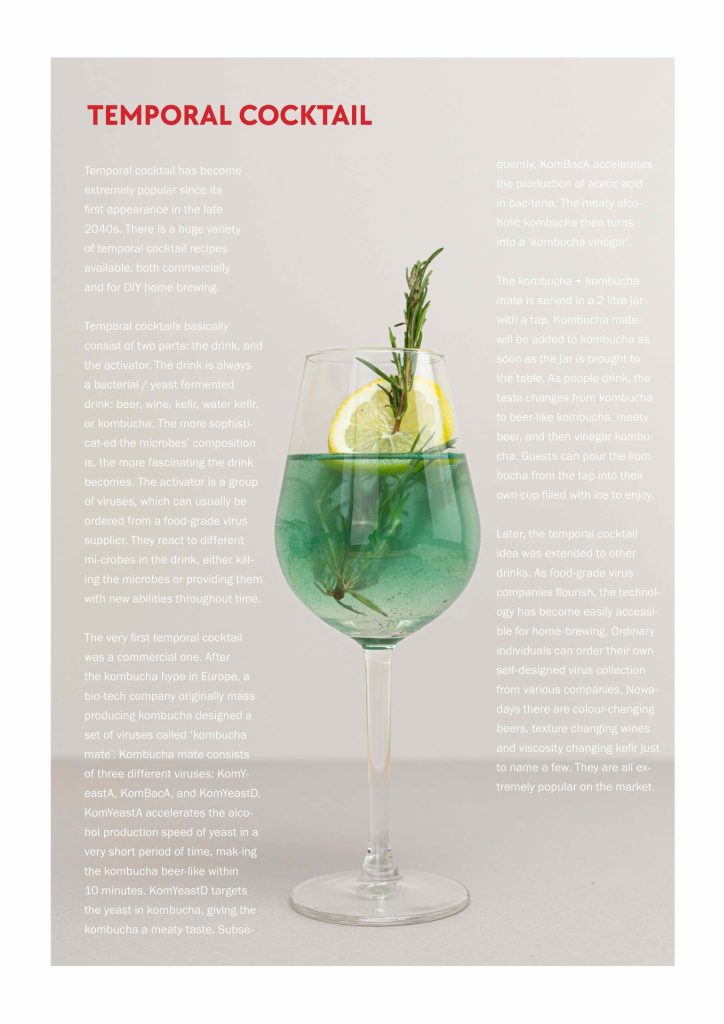
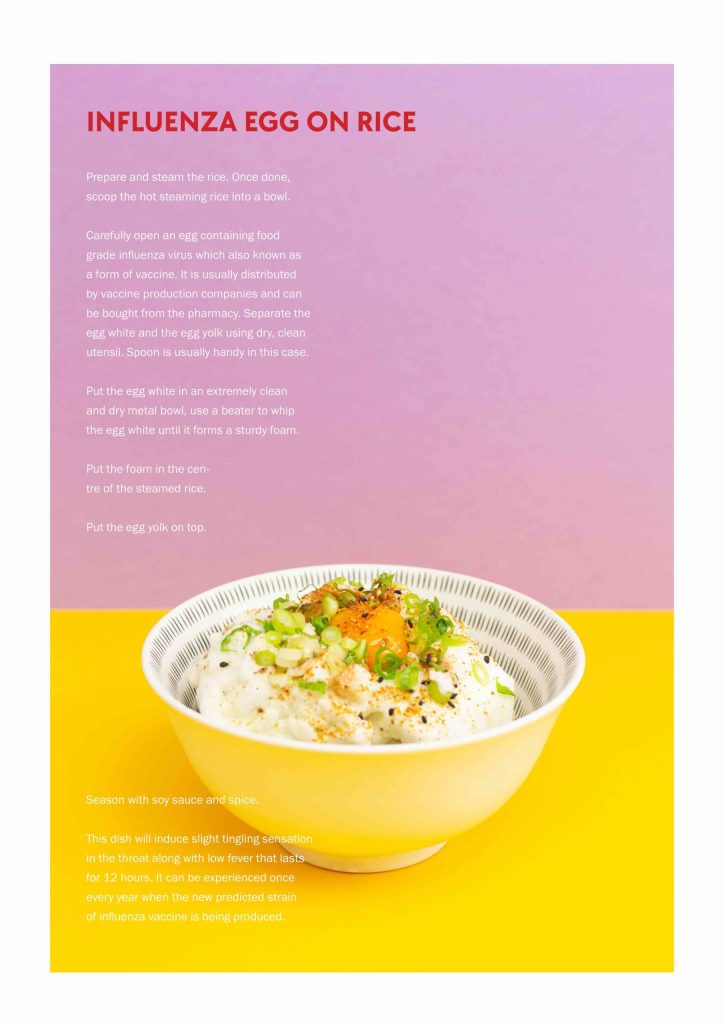
And what if viruses were used in cuisine? The project Virophilia, a collaboration with Soydivision, presents the most intimate relationship humans can have with viruses – by digesting them. The performance is the experiential version of the project Virophilia, which explores the futuristic possibilities of using viruses in culinary experiences. When we no longer think about viruses only on their pathogenic characteristics but also that viruses have other relationships with their hosts, could we open up a whole new relationship with them?
Participants will be invited to join an experiment of alternative perspectives through eating, drinking, and storytelling. The performance experiments in different ways and narratives will allow the participants to experience an intimate encounter with viruses through Indonesian-inspired food, where viruses join the process of making the ingredient and the cooking process. Pei-Ying Lin says I cannot say much about it because it is very much based on the embodiment experience, and to talk too much about it will lose its magic.
They dive deep into how different biological entities are engaged in the process of the ‘material’ of the dishes. In a way, food is all once living biological beings. And therefore, there are many entry points where viruses are present or can take a presence. They try to experiment with different possibilities on how viruses join the process of food making — from growing to the broad definition of cooking to the stage of serving. It is through this process that you will realise how complicated and intertwined the biological world is in the context of food, which we don’t think about usually.
And how does Pei-Ying Lin think art and science can help us cope with challenging situations like climate crisis or the one we are enduring now with Covid-19? For her, this is a complicated question. In one way, art is a very nice medium that frees knowledge from verbal communication to increase the public’s understanding of what we currently know. A public that’s most updated to the newest knowledge will allow us to make more timely decisions for ourselves. But outside of this typical communication context, there is also the aspect that art has the ability to create fiction.
Fiction is a playground for thought experiments. We are allowed to look at the same situation from different perspectives in fiction. And this allows us to think about the issues more thoroughly and deeply.
Future fiction allows us to think ahead of time, and thus we will have time to react. What’s more about fiction in art with materialities, such as performances, food performances, sculptures, etc, is that it allows the participants and audience to experience the narrative in a non-verbal way through embodiment. And this is powerful in that you will no longer be trapped in the stereotypical framework created by the mass media, but much more direct and personal. And therefore, different.
The performance Virophilia takes place on 11th June (2 slots: 6:30 and 8:30 pm) in the context of the group exhibition Hackers, Makers, Thinkers.
Registration and information about these two workshops can be found here.

